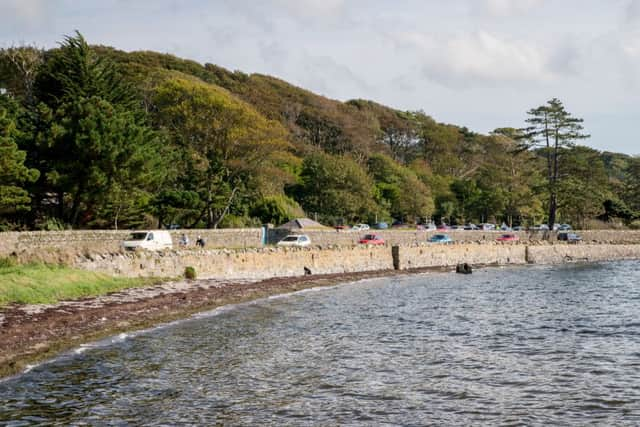National Trust leads debate on threats to Northern Ireland coastline
This article contains affiliate links. We may earn a small commission on items purchased through this article, but that does not affect our editorial judgement.


The Shifting Shores seminar at the Titanic Centre, which has been organised by the National Trust in Northern Ireland, will involve key stakeholders, including MPs, MLAs, local councillors, senior government and council officials, and community representatives working with local and UK-wide coastal experts in a bid to come up with a comprehensive plan for the future of our coastline.
It is expected many of the speakers at today’s event, including Phil Dyke, Coast and Marine Adviser for the National Trust UK, will favour an ‘adaptive’ approach, meaning a more sustainable approach to rising tides, as opposed to ‘engineered’ approaches, like building more sea walls.
Advertisement
Hide AdAdvertisement
Hide AdAs it stands, there is no comprehensive ‘shoreline planning’ in Northern Ireland, although this has been incorporated into local councils in other parts of the UK. Experts say the rate of climate change is happening much quicker than predicted. The National Trust is calling for shoreline planning to be adopted by the NI Executive and local councils as a matter of priority for all of Northern Ireland’s coastline – almost 500 miles. The Trust has also committed to putting plans in place for the coastal areas it owns and cares for in Northern Ireland – over 100 miles – by 2020.
Phil Davidson, Wildlife and Countryside Adviser for the National Trust said: “There is an immediate need for action in Northern Ireland and with the recent reorganisation of local councils and the upcoming changes to Stormont departments, this is the perfect opportunity to begin planning for the long term.
“We have seen already in recent weeks how our coastline has been battered. In the coming years, these extreme-weather events are likely to become more frequent, threatening people’s homes and businesses and vital public services, as well as putting natural habitats and wildlife at risk.
“There is, however, currently no co-ordinated approach within Northern Ireland to inform decision-making, even around crucial areas such as planning decisions, although the recent setting up of a dedicated coastal task force, by Regional Development Minister Michelle McIlveen, involving elected representatives, policy makers and community groups, is a very good first step and we very much welcome it.
Advertisement
Hide AdAdvertisement
Hide Ad“But further action is needed which is why the Trust is calling for long-term shoreline planning by central and local government to ensure sustainable management in the future. We also want to see a co-ordinated coastal monitoring programme so that we can properly understand coastal change.
“That’s what today’s event is all about – it’s about seizing this opportunity and getting the ball rolling on a better approach to coastal management, focussed on adaptation. It includes ending the cycle of continually rebuilding sea defences and working together to come up with innovative solutions which work with nature.”
The seminar is a follow-up to the National Trust UK’s seminal report, Shifting Shores – Playing our Part at the Coast, which was published just before Christmas, and which warned that governments and local authorities are ignoring the accelerating threat of climate change at the expense of future generations.
Download a copy of the Shifting Shores report here: www.nationaltrust.org.uk/shiftingshores.